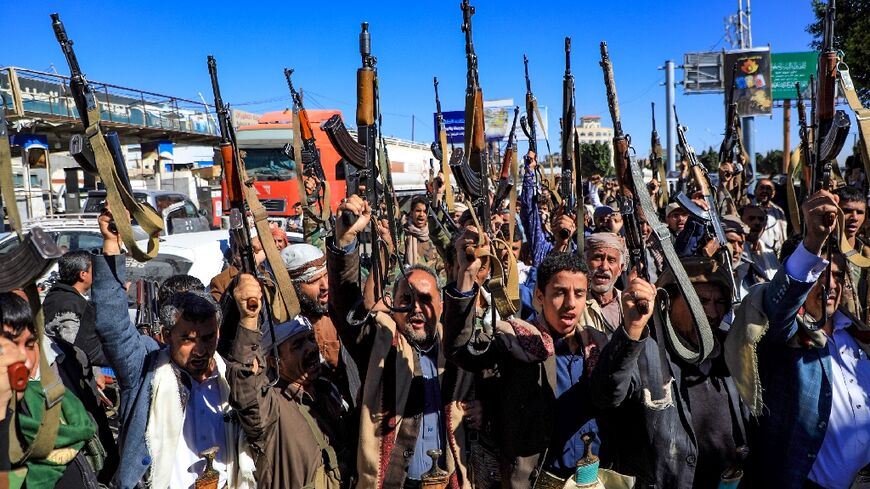Saudi-led coalition says frees Yemen rebels in peace gesture

The Saudi-led military coalition fighting Yemen's Huthi insurgents said Friday it had freed a batch of rebel prisoners, part of what it describes as efforts to end the seven-year war.
Last week, the coalition said it would release 163 prisoners it accused of participating in "hostilities" against Saudi Arabia.
The official Saudi Press Agency said on Twitter early Friday evening that all 163 had been flown to Yemen.
Earlier in the day it had said the process would involve "three stages of air transport of prisoners" to Yemen's Huthi-controlled capital Sanaa and the southern port city of Aden.
A spokesman for the International Committee of the Red Cross told AFP the organisation was "facilitating the transfer of more than 100 Yemeni former detainees from Saudi Arabia to Yemen".
The spokesman, Basheer Omar, said there would be three ICRC flights from the Saudi city of Abha to Aden.
An ICRC statement said 117 Yemeni prisoners were repatriated Friday, while others were released in an earlier operation in which the ICRC did not participate.
"We are pleased to see that humanitarian considerations are being prioritised for the sake of the families, who are waiting for their loved ones to return home," said Katharina Ritz, head of the ICRC delegation in Yemen.
"It is important to alleviate the suffering of the many Yemenis who continue to suffer from more than seven years of conflict. This includes detainees and their families."
Saudi state media footage purported to show released prisoners, in white robes and holding white roses, aboard an ICRC aircraft and then disembarking in Aden. Their identities could not be independently verified.
Senior rebel official Mohammed Ali al-Huthi said on Twitter that there would be "clarification" later "concerning the 163 prisoners" who were released, and called on Saudi Arabia to free "all" Yemeni prisoners.
- Shaky truce -
The conflict pits Yemen's Saudi-backed government, officially based in Aden, against the Iran-aligned Huthis.
It has killed hundreds of thousands of people directly or indirectly, and pushed the Arab world's poorest country to the brink of famine.
It has also seen Huthi strikes on neighbouring Saudi Arabia and on the United Arab Emirates, another member of the coalition.
But a renewable two-month truce that went into effect in early April has provided a rare respite from violence in much of the country, and has seen oil tankers begin arriving at the rebel-held port of Hodeida, potentially easing fuel shortages in Sanaa and elsewhere.
The truce also involved a deal to resume commercial flights out of Sanaa's airport for the first time in six years and to open main roads leading into the besieged government-held city of Taez -- though neither step has been taken so far.
In late March, just before the truce took effect, the Huthis said they had agreed to a prisoner swap that would see 1,400 rebels freed in exchange for 823 pro-government fighters -- including 16 Saudis and three Sudanese.
The last such swap was in October 2020, when 1,056 prisoners were released on each side, according to the Red Cross.
Huthi media reported on April 23 that the rebels had released 42 prisoners.
The Huthis took over Sanaa in 2014, prompting the Saudi-led military intervention the following year and igniting a war that has caused what the United Nations terms the world's worst humanitarian crisis.





